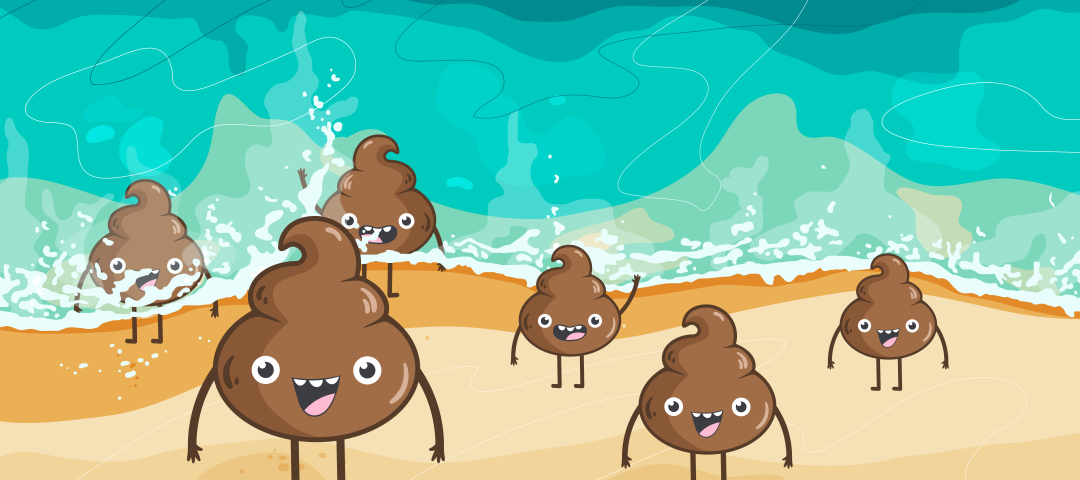Sarasota Has a Poop Problem

Each week, the Suncoast Waterkeeper releases water sample reports from seven sites throughout Sarasota County’s bays. The latest report showed a general decline in enterococci colony-forming units (in laymen’s terms, that means poop).
Less poop in our waters? That’s great news! Right?
Not so fast.
Dr. Abbey Tyrna, executive director and Waterkeeper of Suncoast WaterKeeper, says that these low numbers are not indicative of less fecal matter in our bays. “They do not necessarily indicate cleaner water,” Tyrna says. “One thing that we need to pay attention to is when we take the samples so that we can analyze the results and correlate them with salinity.”
Tyrna explains that depending on the tide, there is more or less salinity in the water and, therefore, a dilution effect. In order to properly know the overall impact of how many colony forming units (CFUs) are in the water, data needs to be plotted according to the peaks and troughs in the tide.
“Honestly, the low numbers could have just been an artifact of sampling,” Tyrna says. “The poop was diluted poop. So we can’t say there is less fecal matter in the water right now because no one has done the work.”
But Tyrna can confidently say that Sarasota has a poop problem.
“Actually, it’s not just Sarasota,” Tyrna says. “The entire state of Florida has a poop problem, and it’s not getting better.”
The reasons for the poor conditions of Florida’s waters are myriad. In Sarasota, Tyrna points to specific things like the unregulated mooring of boats in our bays. “There are 88 regulated moored boats at Marina Jack. They are required to dump their waste regularly and there is a free service there for them,” Tyrna says. “But then there are many other boats that are not regulated and just [sitting] out there. We are trying to work with the city and the county to figure out how can we better regulate the boats that are allowed to sit out there for six months and maybe dumping waste.”
Tyrna says things are even worse at the Longboat Key boat ramp, because there are zero regulations and no waste pump services. “We looked at the DNA in the samples to see if it is caused by humans, and the answer is definitely yes," Tyrna says. "We are speaking at the next town meeting to bring forth the data to say, 'You are going to need to regulate this.'”
High levels of CFUs are harmful to our health. When people come into contact with fecal water, it can cause skin irritation, eye problems, infections and stomach illnesses. CFUs are also contributing to harmful algal blooms in our waters. Poop contains high levels of nitrogen and phosphorous, two essential nutrients that can fuel algal growth. More algae means less clarity of water, which means less sea grass. Sea grass provides food, habitat and nursery areas for numerous kinds of marine life, including manatees.
Our future doesn’t have to be so crappy, and the Waterkeepers are working hard to keep out water clean. Between 2013 and 2019, 800 million gallons of raw, partially treated, and treated wastewater were spilled by the Bee Ridge waste facility into Phillippi Creek. Suncoast Waterkeeper brought forth five legal cases that prevented one trillion gallons of wastewater from entering surface waters across the Sarasota, Manatee and Tampa Bay region.
Suncoast Waterkeeper plans to release more comprehensive data about our water quality in the coming months. Trends can be tracked on their website at www.SuncoastWaterkeeper.org/water-monitoring. Until then, Tyrna says, the public should stay informed, clean up after their pets, make sure their septic tanks are functioning and stop the illegally moored boats in our bays from dumping waste.



